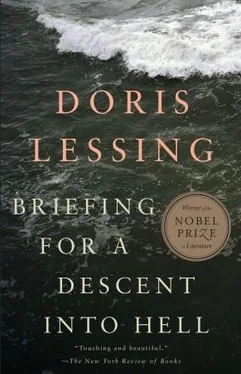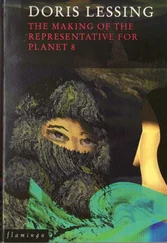1 ...6 7 8 10 11 12 ...54 All the coast lay open to me now, and the blue ocean beyond. And it was as if there was nobody in the world but myself. There was not a ship on the sea, or so much as a canoe on the river, and the long forests lay quiet beneath, and in those miles of trees there was not even a single column of smoke that might show a homestead or a traveller making himself a meal.
On the plateau where I stood, the vegetation was different. Here were the lighter, gayer, layered trees of the savannah, with its long green grasses that would soon turn gold. As I looked West to the mountains that in winter must have snow massed on their peaks which were now summer-blue, the sound of water still came from my left. About half a mile South, over a fairly level ground, I found the source of this noise. The river whose course I had traced up from the sea here ran fast along a shallower rockier bed. It was a stream, a wide bird-shrill splashy stream with gentle inlets and beaches a child could play safely on. But this river did not fall with a roar over the edge of the escarpment, and down those glassy sides which indeed looked as if they had at one time been smoothed by water. No, at about half a mile from the cliff’s edge there was a chasm in the riverbed a couple of hundred yards wide. The great mass of water simply slid into it, almost without noise, and vanished into the earth. But it was possible to see where the riverbed had run, thousands or millions of years ago. For on the other side of the hole where the water rushed into the earth, the river’s old bed still existed, a shallow enough channel, but wide, and widening towards the cliff where it had once fallen, and overgrown with shrubs and grass, and very rocky. The channel was worn down more deeply on one side, where the water had believed that it must make a loop in the riverbed, as is the way of rivers which cannot by nature run straight, and whose bodies spiral around and around exerting a pressure on one bank and then on the other. But the water had not known about the plunge over the cliff which lay just ahead and which would make its preparations for a bend useless: the water had crashed straight over the edge, and when I stood there to look down, I saw that the worn smoothed path of the stream when it had been a waterfall still showed among the littered rocks below the glassy coping over which I had believed it impossible to climb. The river emerged suddenly, a hundred feet below after its long dark passage through the rock. Out it came, as sparkling clear and noisy as it had been above, before it had ever tasted the air of the underearth. After its emergence it crashed and plunged and roared and dashed itself to pieces as I had seen that morning while I climbed up beside it.
I returned to look down into the hole in the plain where the river fell as neatly as bathwater into a plughole, and saw that above the great chasm the air swirled with iridescent spray. I was now again looking Westwards into the setting sun, and I had to find a place to sleep that night. I was not able, looking back along my days and nights, to remember when I had slept well and calmly. Not since I landed on this friendly shore — for by sleep I did not mean that snatched half-hour while the sun set and the yellow beast watched. Not on the dolphin’s friendly back, and certainly not on the rock or on the raft. Time stretched behind me, brightly lit, glaring, dangerous, and uniform — without the sharp knife-slices of dark across it. For when we normally look back along our road, it is as if regularly sharp black shadows lie across it, with spaces of sunlight or moonlight in between. I had come to believe that I was now a creature that had outgrown the need to sleep, and this delighted me.
I decided to watch night fall beside my friends the great coloured beasts, and wandered back in a sunset-tinted world to where they had shown me how to scramble over the impassable glass. But they were not there. Again the air was filled with the loneliness of the sunset hour. I was melancholy enough to cry, or to hide my head under a blanket — if I had got one, and slide with my sadness into a regression from the light. But the scene was too magnificent not to watch as the sun fell sharply behind the distant blue peaks, and the dark fell first over the sea, then over the forests, and then crept slowly up to where I sat with my back against a tree which was still small and elastic enough for me to feel the trunk moving as the nightbreeze started up. And again I watched the moon rise, though this evening I was so high I could see first the blaze of clear silver in the dark of the Eastern sky, then a crisping sparkle of silver on the far ocean, and then the first slice of silver as the moon crept up out of the water. And again it was a night as mild and as light as the last. I sat watching the night pass, and waited for my splendid beasts. But they did not come. They did not come! And they never came. I did not see them again, though sometimes, when I stand on the very edge of the rock-fringed plateau and look down over the tops of the forest trees below I fancy I see a blaze of yellow move in the yellow-splashed dark, or imagine that by a river which from here is a winding blue-green streak, I see a yellow dot: the beast crouching to drink. And sometimes the loud coughing sound of a beast, or a roaring louder than all the noise of the falling waters makes me think of them — and hope for their assistance for the next traveller who makes his long delayed landfall on this glorious coast. Again the night was short. I may have slept a little, but if so it was a sleep so dazzling with the light which lay full on my lids that in the morning what lay behind me to the time of the sunset was a broad space of time evenly filled with a cool refreshing silver. I thought that I should perhaps try to make my way to the distant mountains when the sunlight had fully come back, but when the light did come — when the little bubble of earth turned itself around so that the patch I stood on stared into the sun’s face, then I saw that the tree I had been leaning against all night grew out of a large flat rock, and that …
And now I must be careful to set down my mind’s movement accurately. For suddenly it had changed into that gear when time is slower — as when, falling off a ladder, one has time to think: I shall land so , just there, and I must turn in the air slightly so that my backbone does not strike that sharp edge. And you do turn in the air, and even have time to think: this fall may hurt me badly, is there someone in the house to help me — and so on and so forth. All this in a space of time normally too short for any thought at all. But we are wrong in dividing the mind’s machinery from time: they are the same. It is only in such sharp emphatic moments that we can recognize this fact. As I was staring at the flat rock, which had unmistakably been dressed, for I could see man-marks at its edges, my mind slowed, while time went faster; or time went slower while my mind speeded — to use our ordinary way of reckoning. Whatever the process, I was suddenly quite remarkably alert and excited, and had even got to my feet without knowing I had, and I was standing upright looking around me. I was looking at the foundations of a great house, or temple, or public building of some sort, which now lay clear to see for a couple of hundred yards all around me in the fresh green grass. But I had not seen anything yesterday but a grassy savannah with some rocks scattered about among low trees. Now the ruinous foundation was unmistakable. It was as if the knowledge of what I would see caused me to see what otherwise I could not — for I already half-believed that my seeing had created what I saw. For it was so hard to believe that yesterday I had clambered up over the edge of the escarpment ready to accept anything at all, from peopled cities to men with one eye in the middle of their foreheads, and yet I had not seen what was so clearly to be seen. This city, or town, or fortress, had been of stone. Everywhere around me the floors and foundations lay clearly visible. Everywhere lay pillars, columns and lintel stones. I walked North for a while — but in this direction there seemed no end to this evidence of men having lived here once. I walked West — the city continued well beyond where I tired and turned South. The slabs and hunks and floors of dressed stone continued as far as the riverbank I had walked along yesterday — and had seen nothing of ruins. And they extended right to the edge of the cliff. Once there had stood here, on this escarpment’s verge, overlooking the sea and the forests, a very large and very fine city.
Читать дальше
Конец ознакомительного отрывка
Купить книгу










